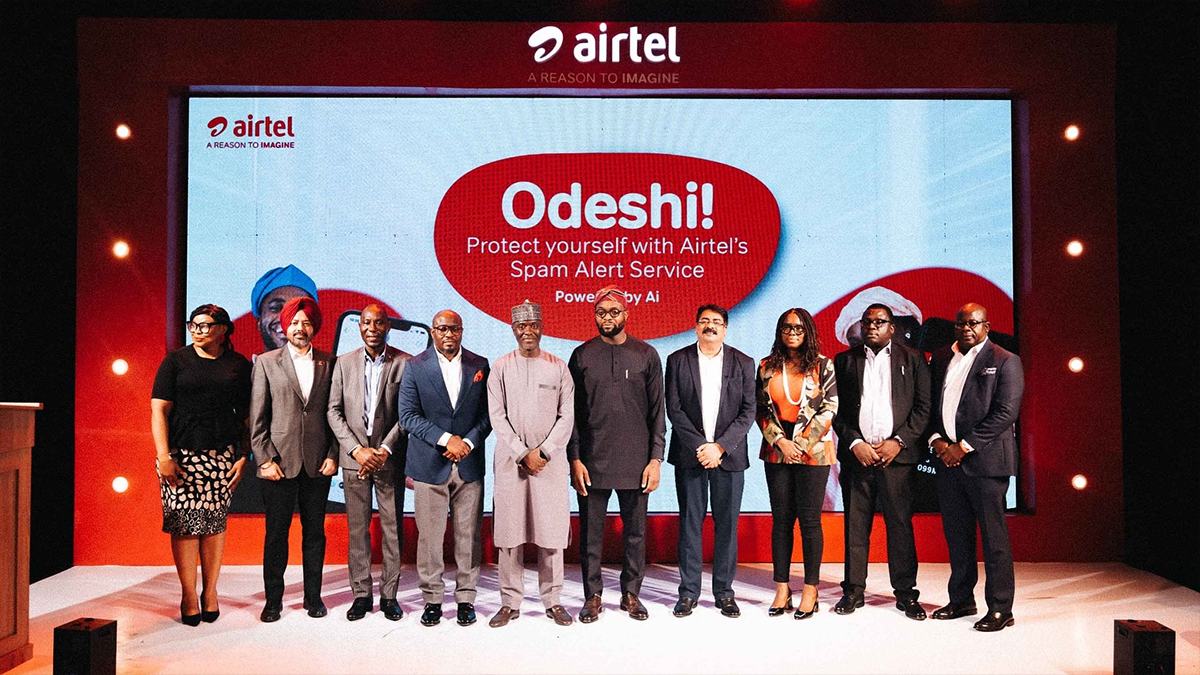You will not always see it coming. One moment, it is a random SMS about “urgent bank upgrades.” The next, someone’s cloned your account or drained your wallet. In today’s hyperconnected Nigeria, the real danger is not just bad network — it is bad actors using that network to exploit trust.
But what if your mobile provider could see the threat before you do?
In a bold step toward proactive digital protection, Airtel Nigeria is using artificial intelligence to take a stand against one of the fastest-growing threats in our digital ecosystem: spam and phishing messages. Its newly launched Spam Alert System, powered by AI, is now shielding millions of users in real-time — and it’s a model worth understanding, especially for anyone interested in data safety, ethical tech, or digital citizenship.
Since its launch in March 2025, the Airtel Spam Alert System has identified and flagged over 9.6 million spam messages — and that was within the first two months alone. That is more than 150,000 potential scams intercepted every day.
This isn’t a minor win. In a country where cybercrime costs individuals and businesses billions annually, it is a significant breakthrough — and a massive relief for users who are often one wrong click away from digital harm.
Airtel’s system doesn’t rely on human monitoring. It uses AI to scan every SMS for over 250 behavioural and technical markers — including message frequency, timing, sender history, and link origin. All of this happens in less than two milliseconds. And to be clear: the system does not read your messages. It analyses metadata, not content, so your privacy stays intact.
Also built into this system is a constantly updated blacklist of malicious URLs, helping to prevent users from clicking harmful links or sharing personal information unknowingly.
It is surveillance-free, lightning-fast, and fully automated — the kind of infrastructure Gen Z deserves in a country growing more digitally dependent by the day.
Young Nigerians are online more than any previous generation. From mobile banking to e-learning, job hunting, and social activism, your phone is not just for chats — it is your portal to life. And while that opens doors, it also exposes you to real risks.
According to Airtel’s internal data, most spam messages are off-network, meaning they come from external actors — scammers with no ties to Airtel, often from outside Nigeria. The 9.1 million off-net threats intercepted are a wake-up call that cyber risks are global, even when the consequences are deeply personal.
What sets this initiative apart is not just the technology — it is the mindset. In deploying this system, Airtel is demonstrating that corporate responsibility isn’t limited to philanthropy. It is also about digital protection, consumer education, and ethical innovation.
This aligns with the Nigerian Communications Commission’s call for stronger protections against cyber threats and better consumer safeguards, especially for young users navigating a landscape filled with opportunity and danger.
At CSR-in-Action, we believe that true sustainability goes beyond climate and community. It includes digital ethics, data protection, and tech-enabled accountability. Airtel’s spam detection system is not just a telco success story — it is a blueprint for how private organisations can step up and take digital safety seriously.
Our mission is to help organisations embed responsible innovation into everything they do — from internal policy to external engagement. Through advisory services, capacity building, and youth programmes like Z-in-Action, we empower the next generation to not only understand these systems but to design and improve them.
If you are a student, early-career professional, tech enthusiast or just a curious citizen, here are three things this story should inspire you to do:
-
Stay aware – Cyber threats evolve. Your awareness must evolve, too.
-
Demand better – If one company can protect its users, others can too.
-
Get involved – Be part of the conversation on ethical tech, AI, and data protection.
Airtel’s spam detection system is a start, not a solution. But it sends a clear message: in a country with one of Africa’s most vibrant digital youth populations, tech companies must be more than providers — they must be protectors.
And young people? We are not just users. We are designers of the digital future. Let’s build one that is safer, smarter, and more just.


